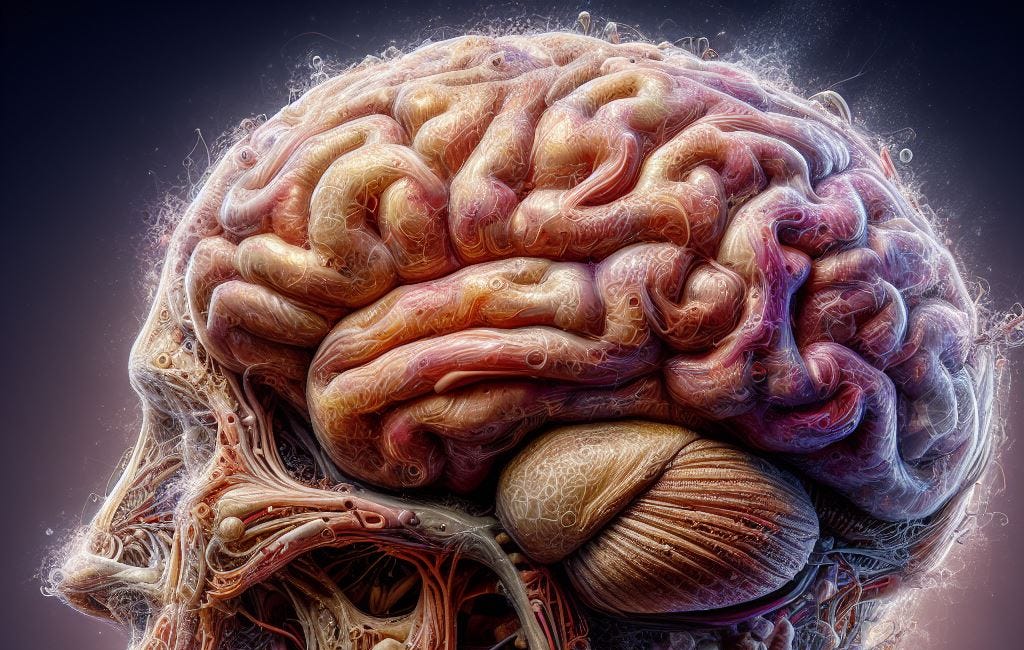Confronting Darkness: Cortázar and Vivekananda on the Courageous Struggle with Silent Anxieties.
Unraveling Psychological Tensions in Julio Cortázar’s Short Story "House Taken Over".
📢 **Exciting News: Elevate Your Experience with Premium Benefits!**
Now, I'm thrilled to unveil an exciting development—we're introducing premium paid subscriptions to Vedanta Substack! By becoming a paid subscriber, you not only enhance your experience but also play a crucial role in supporting the continuation of our exploration.
Vedanta Substack is a reader-supported publication. To receive new posts and support my work, consider becoming a free or paid subscriber.
🔓 **Unlock Exclusive Benefits as a Paid Subscriber**
As a paid subscriber, you'll enjoy a range of exclusive benefits:
- Access to in-depth posts with special recommendations for further study.
- Personal invitations to exclusive chats or podcast interviews on captivating topics, featuring multiple thinkers simultaneously.
- The opportunity to propose the publication of your articles and essays on Vedanta Substack.
- Invitations to Vedanta retreats and events offering a deeper exploration of spiritual and philosophical realms.
In Julio Cortázar’s cryptic short story “House Taken Over,” two unnamed siblings find their domestic peace increasingly infected by a sinister, unseen force that eventually drives them into exile. Critics have interpreted this metaphorical tale as underscoring how unaddressed psychological tensions can utterly consume one’s identity. By confronting inner darkness and undertaking thoughtful transformation, Cortázar suggests, liberation may arise.
The image of the house invaded by an invisible “they” represents the mind being overtaken by unspoken anxieties. The once-welcoming family residence transforms through implication and insinuation into a space dominated by fear. Cortázar leaves the nature of this emotional demon unclear, inviting readers to draw connections to personal struggles or repressed traumas. The open framing emphasizes shared difficulties in coping with inner crises.
Beyond the Doors of Perception: Vedanta, Huxley and Bergson.
📢 **Exciting News: Elevate Your Experience with Premium Benefits!** Now, I'm thrilled to unveil an exciting development—we're introducing premium paid subscriptions to Vedanta Substack! By becoming a paid subscriber, you not only enhance your experience but also play a crucial role in supporting the continuation of our exploration.
Cortázar’s domestic setting also evokes the context of family relationships in shaping personal troubles. The vague portrayal of the siblings’ bond implies a lack of open communication about rising distress, highlighting isolation’s dangers. Read symbolically, the text cautions against allowing unspoken pains to silently fill spaces between loved ones.
Swami Vivekananda similarly discusses the value of expressing fears in banishing their paralyzing grip over minds and identity. He states, “The first sign that you are becoming religious is that you are becoming cheerful. When a man is gloomy, that shows that he is weak...It is a weakness that leads to all misery in the world.” Here Vivekananda points to honest cheerfulness, not suppression of difficulties, as a characteristic of personal empowerment.
Having established the secret invasion of the house as reflective of accumulating mental distress, Cortázar’s protagonists respond by avoidance and denial. Yet as the darkness claims more territory, its authority strengthened by silence grows. Vivekananda would likely observe that refusal to acknowledge inner troubles reflects soul-weakness rendering one vulnerable to life’s blows. However, through courage and candour, the power of distress diminishes.
Both Cortázar and Vivekananda might agree that acknowledging painful emotions openly rather than permitting their control from shadows is essential. Vivekananda explains that we grant power to external events not through the original impetus but through our chosen response. He writes, “We are responsible for what we are; and whatever we wish ourselves to be, we have the power to make ourselves.” Thus shaping life’s narrative remains within human agency, starting with narrating inner truths to loved ones who can help transform trauma into growth and resilience.
Cortázar depicts the failure to communicate anxieties as allowing them to gain strength and force devastating outcomes. However, Vivekananda assures that the company of the holy protects against disaster. He promises, “He who has learned to obey the laws of his being, who is unwrapped of the folds of his lower self becomes a channel for the distribution of moral and spiritual forces.” Communing with evolved souls enables their elevated consciousness to regulate and direct the distressed towards wisdom and peace.
While affirming hardship’s potential to deeply transform personal identity, both thinkers emphasize the self-directed development of insight over passive suffering. Envisioning alternative modes of thought and life patterns represents initial stirrings towards liberation. Vivekananda elevates this to the sacred level, stating, “That by which all this universe has come into existence – in That only does everything rest. Know That and become free.” Indeed, the metaphysical realm holds keys to transcending egoic bonds.
Swami Vivekananda explains that the capacity for concentration has two components - attachment and detachment. Developing the former without the latter leads to suffering. He warns, “On the ethical side there is danger in the development of the power of concentration - the danger of concentrating the mind upon an object and then being unable to detach it at will... Almost all our suffering is caused by our not having the power of detachment." Like Cortázar, Vivekananda suggests cultivating the mind's capacity to both focus and loosen its grip on thoughts and emotions.
Having established the secret invasion of the house as reflective of accumulating mental distress, Cortázar’s protagonists respond by avoidance and denial. Yet as the darkness claims more territory, its authority strengthened by silence grows. Vivekananda would likely observe that refusal to acknowledge inner troubles reflects soul-weakness rendering one vulnerable to life’s blows. However, through courage and candour, the power of distress diminishes.
Cortázar’s rich metaphor advocates meeting fears with candidness rather than silence, accepting trauma’s invitation towards self-expansion. Vivekananda similarly elevates consciousness from contracted identification with temporary troubles toward soul-nature’s innate divinity and expansiveness. Both acknowledge through wisdom and courage, confronting inner darkness yields hope and liberation.
I have woven tales to share, for any who care to read them. My books await you on Google Books. Check also my stories on Medium.com.
I would be honoured if you considered subscribing to the Premium Contents of my Vedanta Substack and leaving feedback, comments, and suggestions both on this page and by writing to me at cosmicdancerpodcast@gmail.com.
Thank you for your precious attention.





